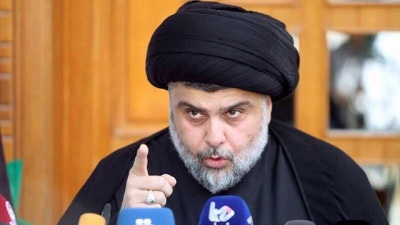 Reconstruction and the future of post-ISIS Iraq
Reconstruction and the future of post-ISIS IraqPaul Davis
I became very upset recently over the state of mind that has settled over the very dangerous issues encompassing the Middle East.
I recently attended a panel discussion on the Iraq reconstruction conference held in Kuwait that ultimately became a discussion on the future of Iraq. The discussion was held at the Hudson Institute, a world-renowned think tank in Washington DC. I have attended many discussions at Hudson and other organizations and think tanks, and have walked away in disagreement with some of the panelists, although respecting their point of view. This time however I walk away with a feeling of dread and danger.
While the Hudson panelists Senior Fellow Jonas Parello-Plesner and Adjunct Fellow Michael Pregent spoke to facts on the ground and potential problems as well as solutions, the others were more political. While it can be expected that Iraqi Ambassador to the US Fareed Yesseen would mouth Iraqi government talking points, the statements from RAND Corporation Senior Analyst Linda Robinson were particularly disturbing.
The ambassador spoke of the increasing capabilities of the Iraqi Army and that it is not the same army that ran from ISIS. He pointed out that it was this new army that, with the aid of coalition forces, defeated ISIS – no mention of the Peshmerga who were the first to hold back the tide of ISIS aggression.
When asked about the upcoming elections and the fear of some that it will cement Iranian control of the Baghdad government, he pointed out that the outcome will be the decision of the Iraqi people in a fair election, with no mention of the reaction of Baghdad to the decision of the Kurdish people in a free and fair open election on independence.
He did say that he was at a recent meeting between “PM Abadi and Nechirvan Barzani” that was very cordial. I put the quotes around the statement to point out that while he said PM Abadi he did not use the title for Barzani. While this may sound petty it is a very serious insult in diplomatic terms.
Worst however was Ms. Robinson. Her credentials as a Woodrow Wilson Center Scholar and now a senior research analyst at RAND Corporation, which has strong ties to US policy makers, increase the danger of her comments and observations. The most dangerous notion she put out was her apparent support to the Popular Moralization Forces (PMF), also known as Hashd al-Shaabi.
She pointed out to the room that the PMF were incorporated into the Iraqi armed forces by law and were therefore under the control of Abadi. This last of course is a bad cover and was implemented long after the atrocities committed against Sunni civilians. An indication of the lie was when the PMF were incorporated into the assault on the Kurds in Kirkuk. Muqtada al-Sadr withdrew the Badr Corp units shortly afterwards, showing they were not under government control.
The most incredulous statement she made was at the end when she said in her travels she found many Iraqis that were happy to see the PMF enter their villages. I guess she forgot to talk to the families of victims and survivors of those Sunnis who were slaughtered by the PMF. I guess she also missed the PMF’s call for attacking US forces.
It was not all bad news. In the end a question was asked as to policy recommendations should the elections bring in a very pro-Iranian government. Mr. Pregent answered that his recommendation would be to move American assets such as Joint Special Operations Command (JSOC) troops to Erbil.
An excellent follow up read to all this is Mr. Parello-Plesner’s paper co-authored with Peter Rough, a fellow of the Hudson Institute, titled “Reconstructing Iraq: A Test Case for Trumpian Burden-Sharing.”
Speaking to the fact that the US worked to help bring over 2,300 private companies to the Kuwait conference he points out: “Even so, the rebuilding of Iraq has a Sisyphean quality to it: After spending billions of dollars on reconstruction last decade, US partners are weary to sink money into the country again.”
Regardless of the ambassador’s words of a better, rebuilt Iraq, the world does not trust what is happening and fears the return of ISIS or some variant based on the actions of the Iraqi government.
Paul Davis is a retired US Army military intelligence and former Soviet analyst. He is a consultant to the American intelligence community specializing in the Middle East with a concentration on Kurdish affairs. Currently he is the president of the consulting firm JANUS Think in Washington D.C.
The views expressed in this article are those of the author and do not necessarily reflect the position of Rudaw.
No comments:
Post a Comment